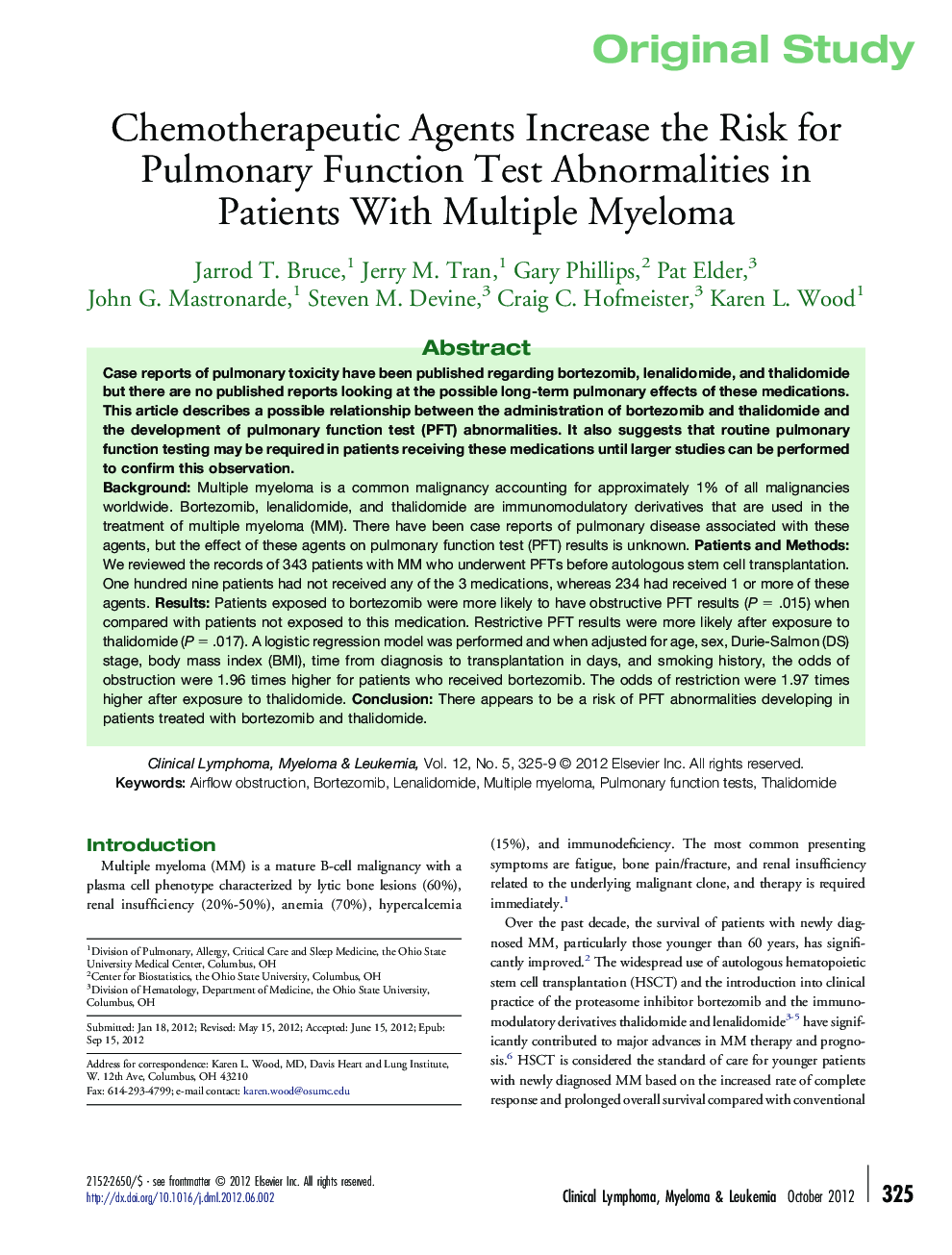| Article ID | Journal | Published Year | Pages | File Type |
|---|---|---|---|---|
| 2755252 | Clinical Lymphoma Myeloma and Leukemia | 2012 | 5 Pages |
BackgroundMultiple myeloma is a common malignancy accounting for approximately 1% of all malignancies worldwide. Bortezomib, lenalidomide, and thalidomide are immunomodulatory derivatives that are used in the treatment of multiple myeloma (MM). There have been case reports of pulmonary disease associated with these agents, but the effect of these agents on pulmonary function test (PFT) results is unknown.Patients and MethodsWe reviewed the records of 343 patients with MM who underwent PFTs before autologous stem cell transplantation. One hundred nine patients had not received any of the 3 medications, whereas 234 had received 1 or more of these agents.ResultsPatients exposed to bortezomib were more likely to have obstructive PFT results (P = .015) when compared with patients not exposed to this medication. Restrictive PFT results were more likely after exposure to thalidomide (P = .017). A logistic regression model was performed and when adjusted for age, sex, Durie-Salmon (DS) stage, body mass index (BMI), time from diagnosis to transplantation in days, and smoking history, the odds of obstruction were 1.96 times higher for patients who received bortezomib. The odds of restriction were 1.97 times higher after exposure to thalidomide.ConclusionThere appears to be a risk of PFT abnormalities developing in patients treated with bortezomib and thalidomide.
